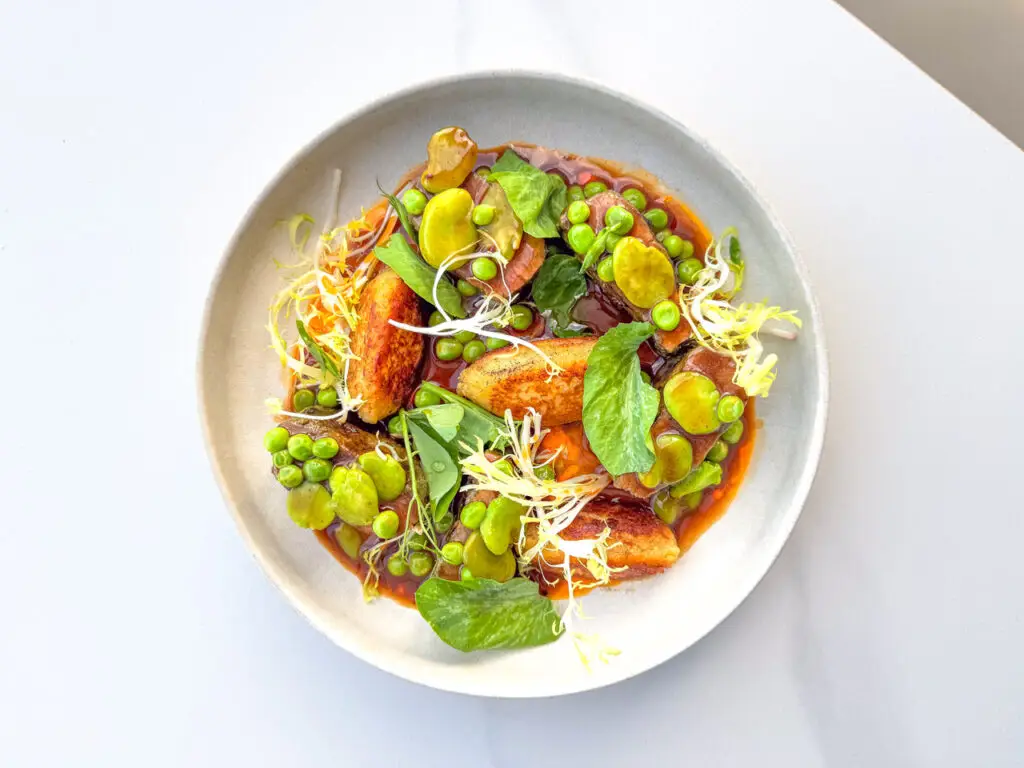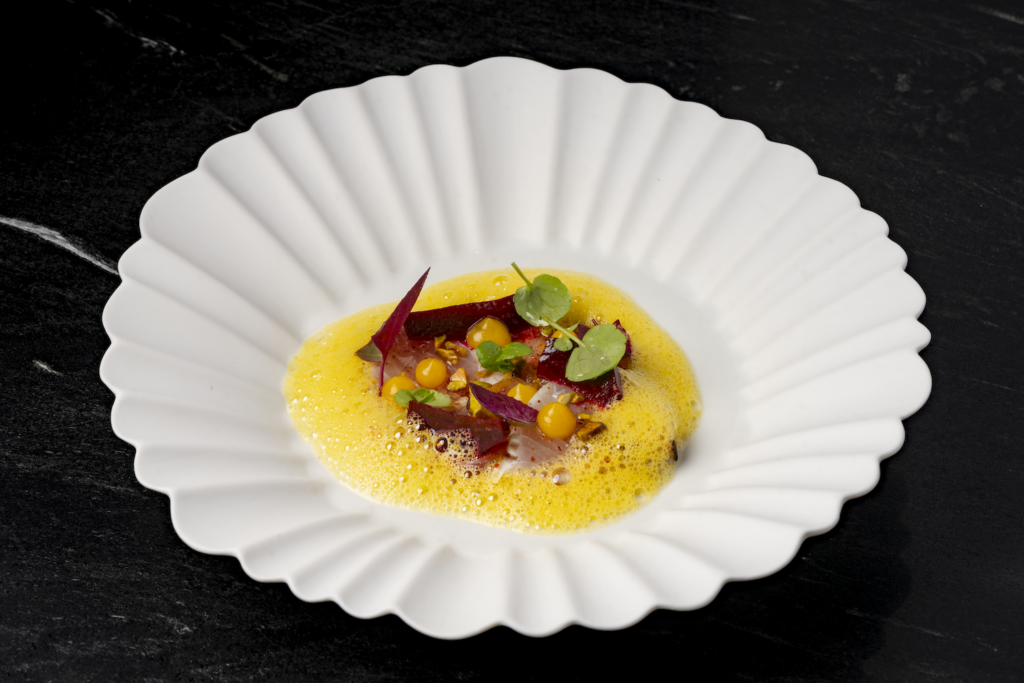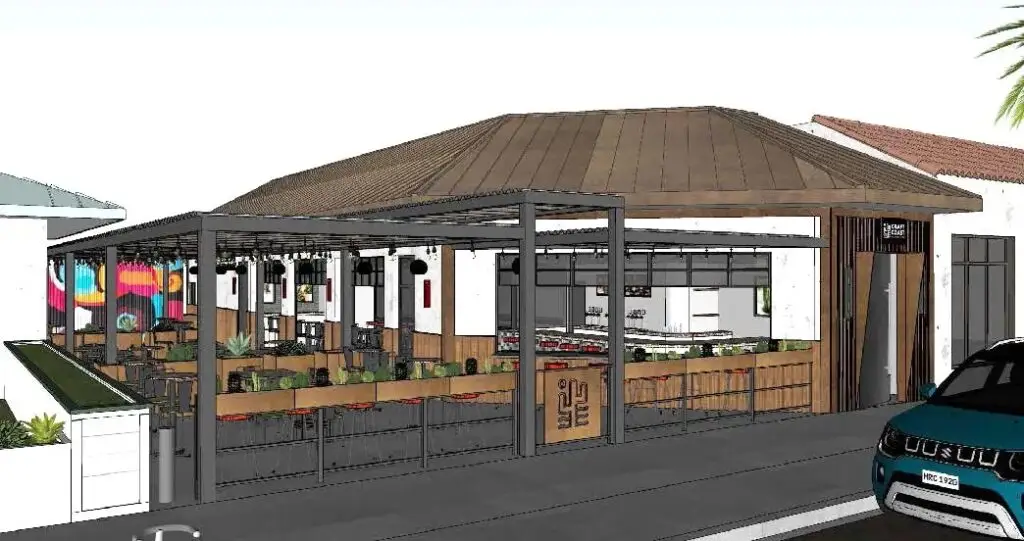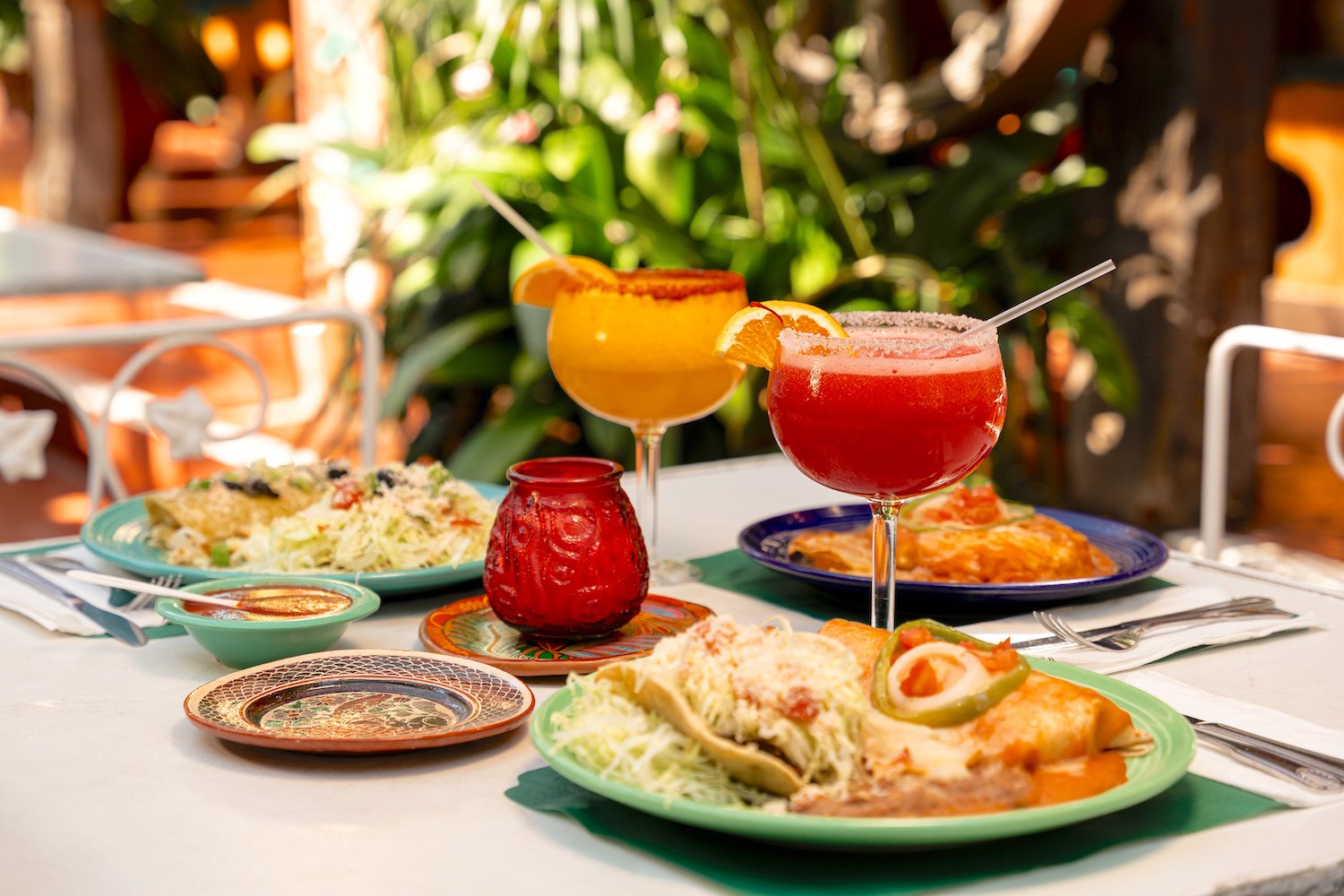Walking inside Fidel’s Little Mexico in Solana Beach is like wandering into a House of Leaves–esque vortex, where the interior feels bigger than the exterior. Hallway after hallway leads to stairwells, random dining rooms, occasionally a bathroom through a seemingly unmappable rabbit hole. Thinking back, it’s likely I’ve never been to Fidel’s with fewer than six family members. It’s also completely plausible that we’ve never sat at the same table twice.
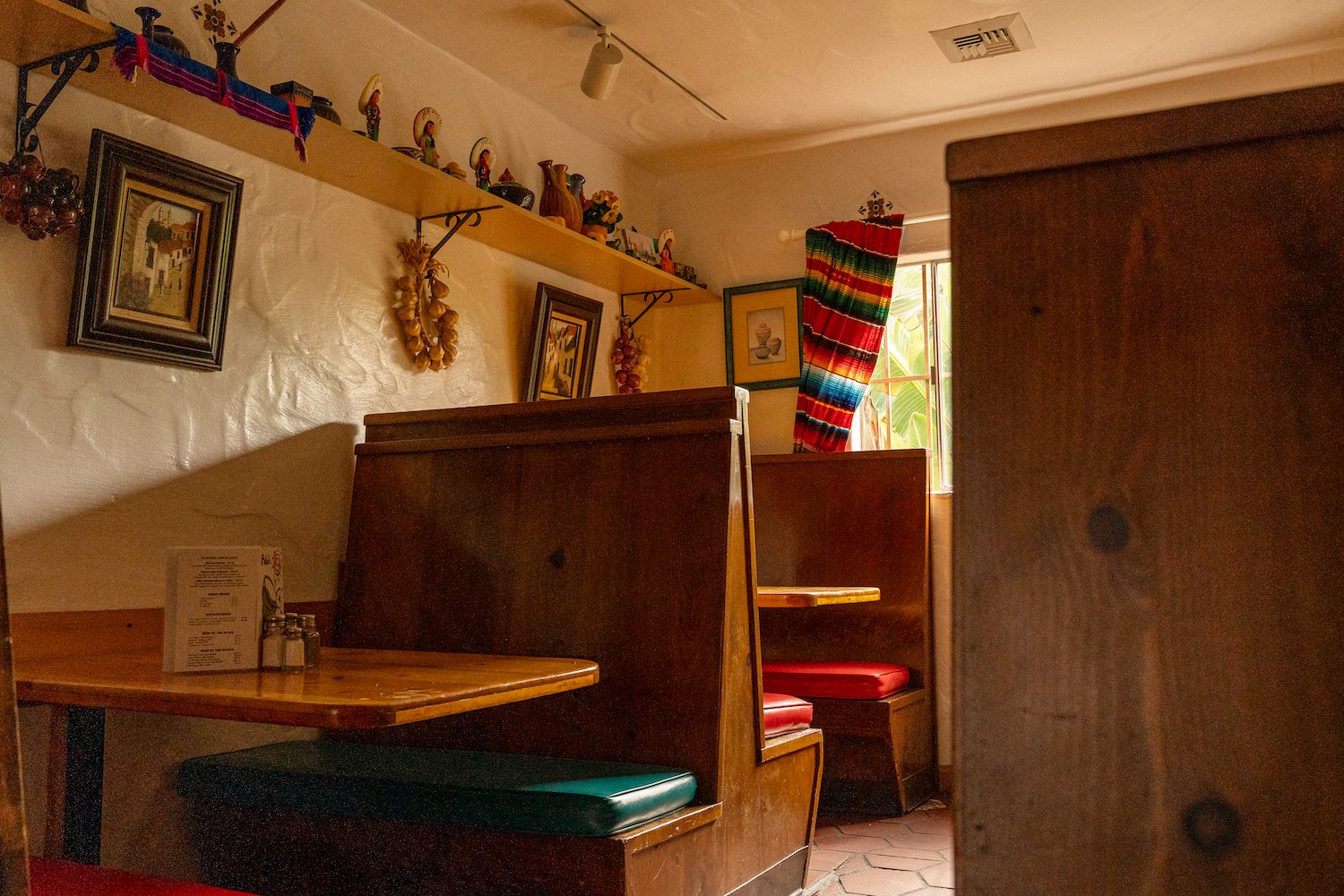
You know that hole-in-the-wall you pass on your way to work every morning? It might be time to go inside.
Fidel’s opened in 1960, and the original owner, Fidel Montanez, runs it to this day. The restaurant’s famous, gloriously bulging smothered burritos taste the same today as they did last week as they did last year as they did in the ’60s. My son eats the same tacos I gobbled down as a teen. Nostalgia is one potent emotion, and, for me, Fidel’s provides it in spades. In an age when the average restaurant lifespan ranges from eight to 10 years, it’s managed to last. How?
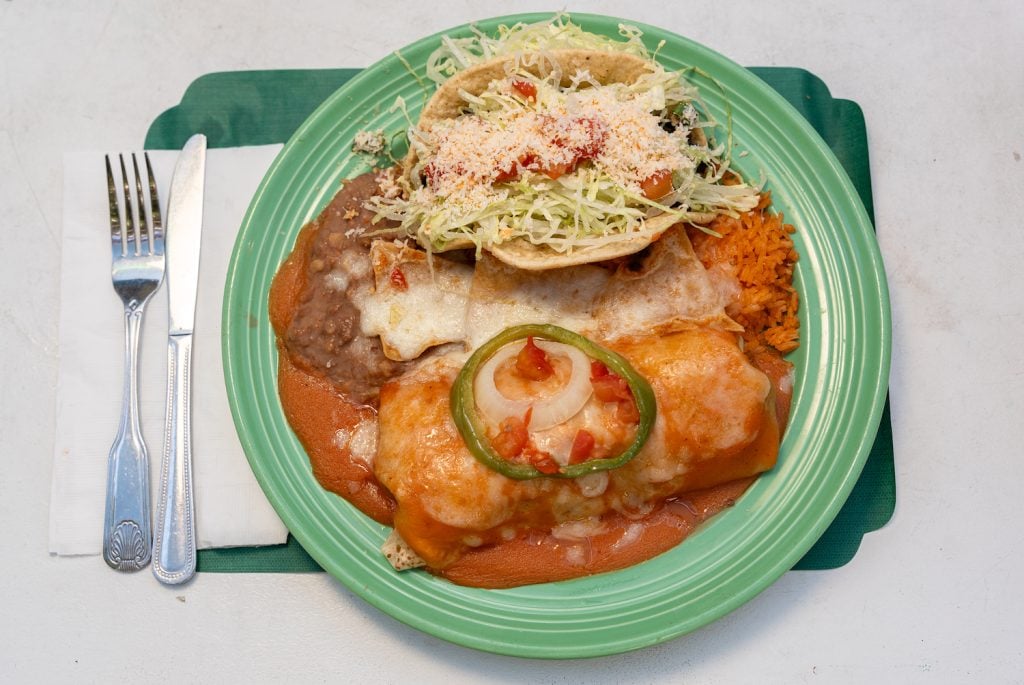
Fidel’s has served the same beloved recipes for tacos, chiles rellenos, and other Mexican classics since 1960.
Places like Fidel’s don’t have Instagram accounts or weekly email newsletters carefully curated by a public relations firm. They’re the joints you drive by every day on your commute until one day, during a commercial break on 91X, it occurs to you to wonder, “How long has that place been there?” and, then, “How on earth does it stay open?” Maybe it makes you intrigued enough that, on your way home, you take that exit, and you step inside.
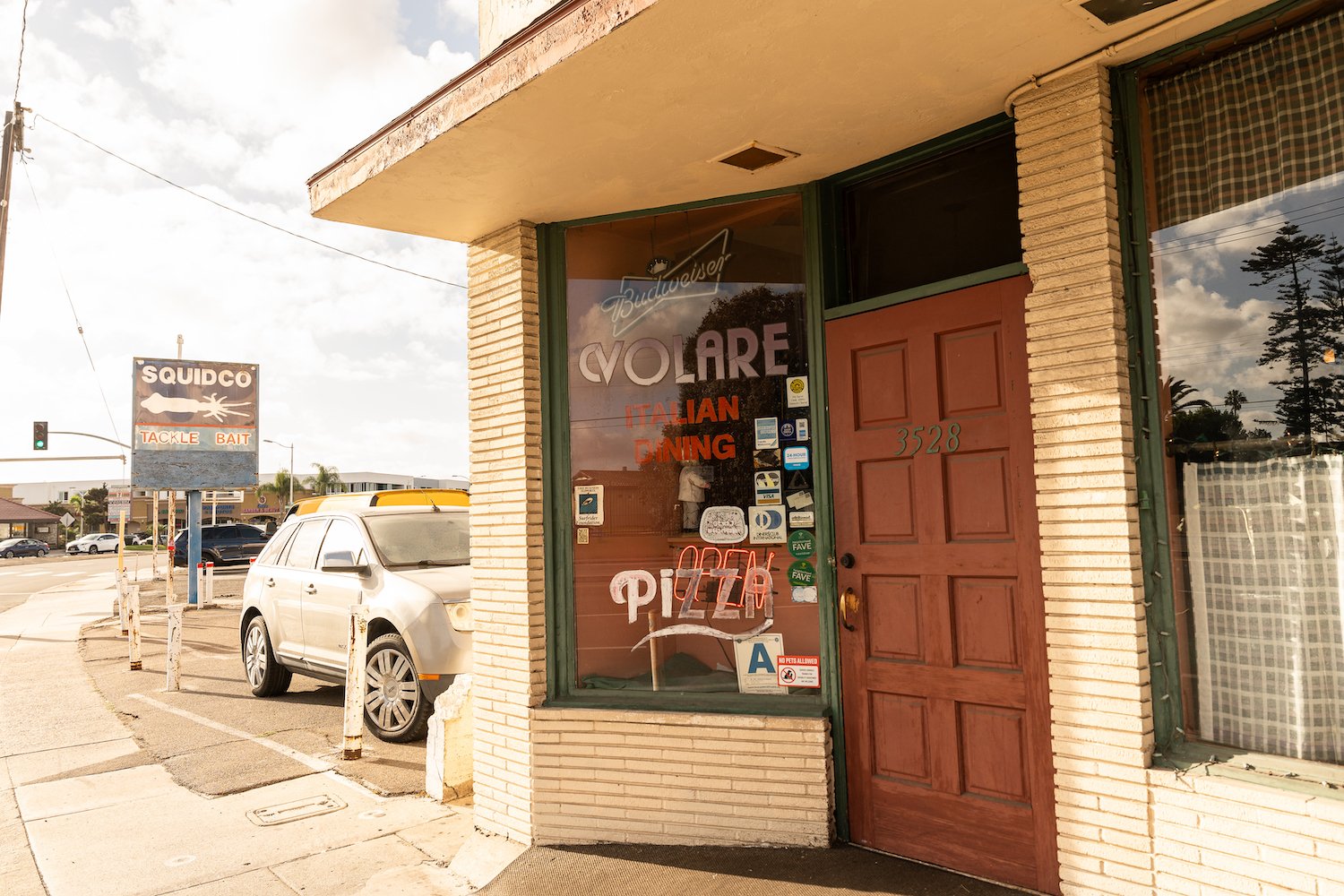
To get to Volare, park at the nearby Squidco bait shop.
Such curiosity recently got the better of me. Sandwiched between a fishing supply shop and a smog inspection garage is Volare Italian Dining, a family-owned eatery open since 1978. I’ve passed the unassuming building in Point Loma dozens—if not hundreds— of times on my way to Pechanga Arena and Liberty Station, and I’ve long wondered what garlicky treasures lie inside the walls that so badly need a fresh paint job. One night, family in tow, I decided it was time to find out.
After wedging my car into a spot in the very crowded parking lot at Squidco bait shop next door, I walked into a time capsule—clearly, interior design is not a priority at Volare, but it works.
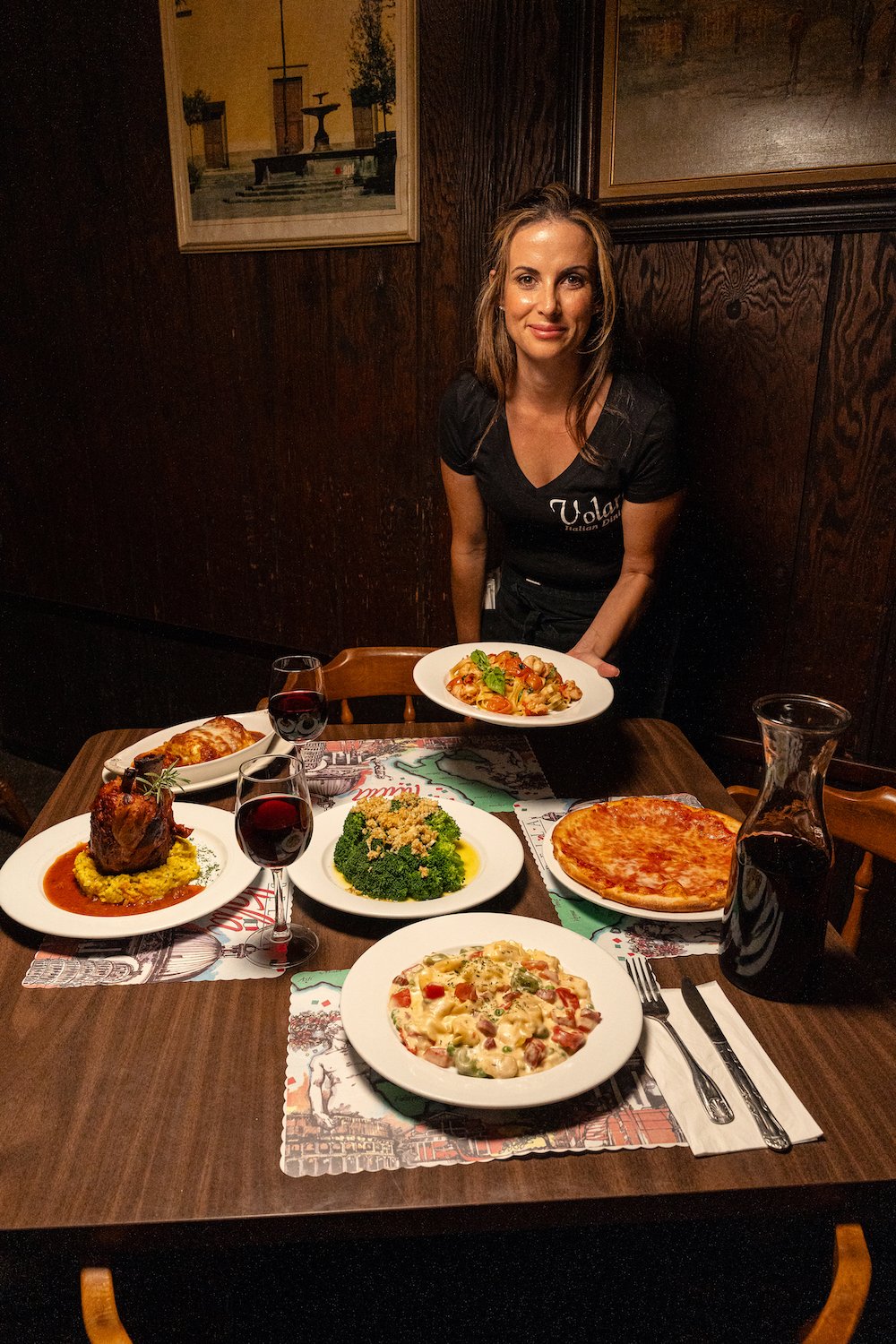
Volare has been in owner Antonella Pascucci’s family since 1978.
“People don’t go here because they want to have a five-star dining experience,” laughs owner Antonella Pascucci, née Sanfilippo. “But that’s the charm of it. It’s a fine line between ‘I want to do some updates’ [and] ‘I don’t want to lose the old-school vibe.’”
Pascucci’s uncles Alfio and Onofrio Sanfilippo opened Volare in the ’70s, running the restaurant as partners until they returned to their native Sicily 20 years later. Their sister Anna, Pascucci’s mother, took the reins, and it’s remained in the family ever since. Now, Pascucci handles the day-to-day and hopes that, one day, her own children will take over the business.
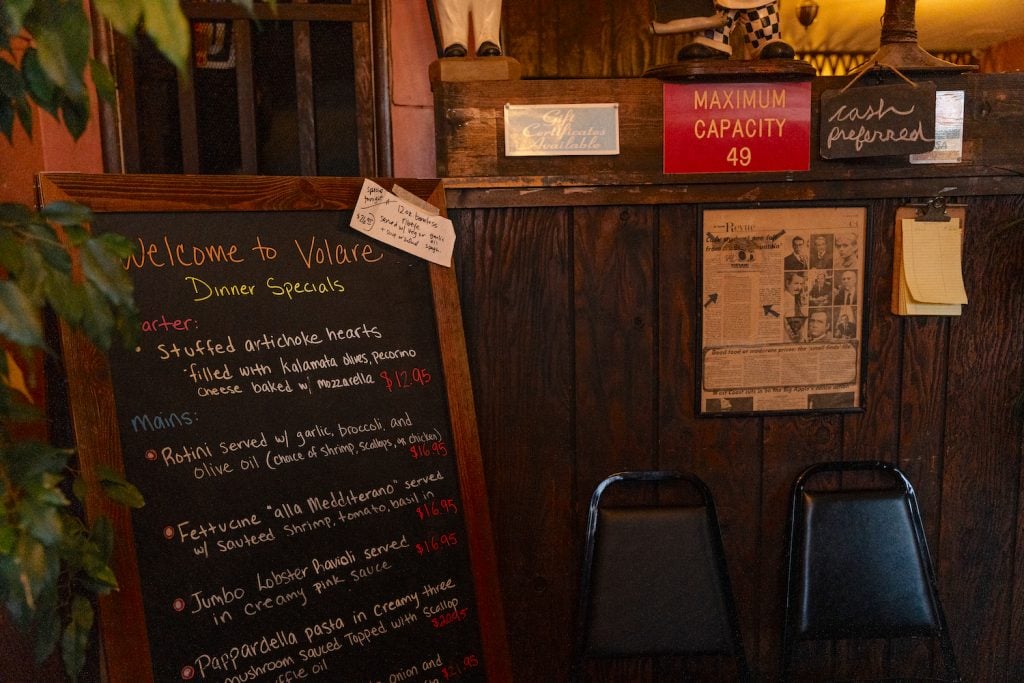
That history is visible inside. Terracotta-colored walls showcase crinkled photos and mismatched paintings over an industrial-gray carpet, worn down over decades of service. None of the plates match, and there’s one beer on draft, $13.95 for a pitcher.
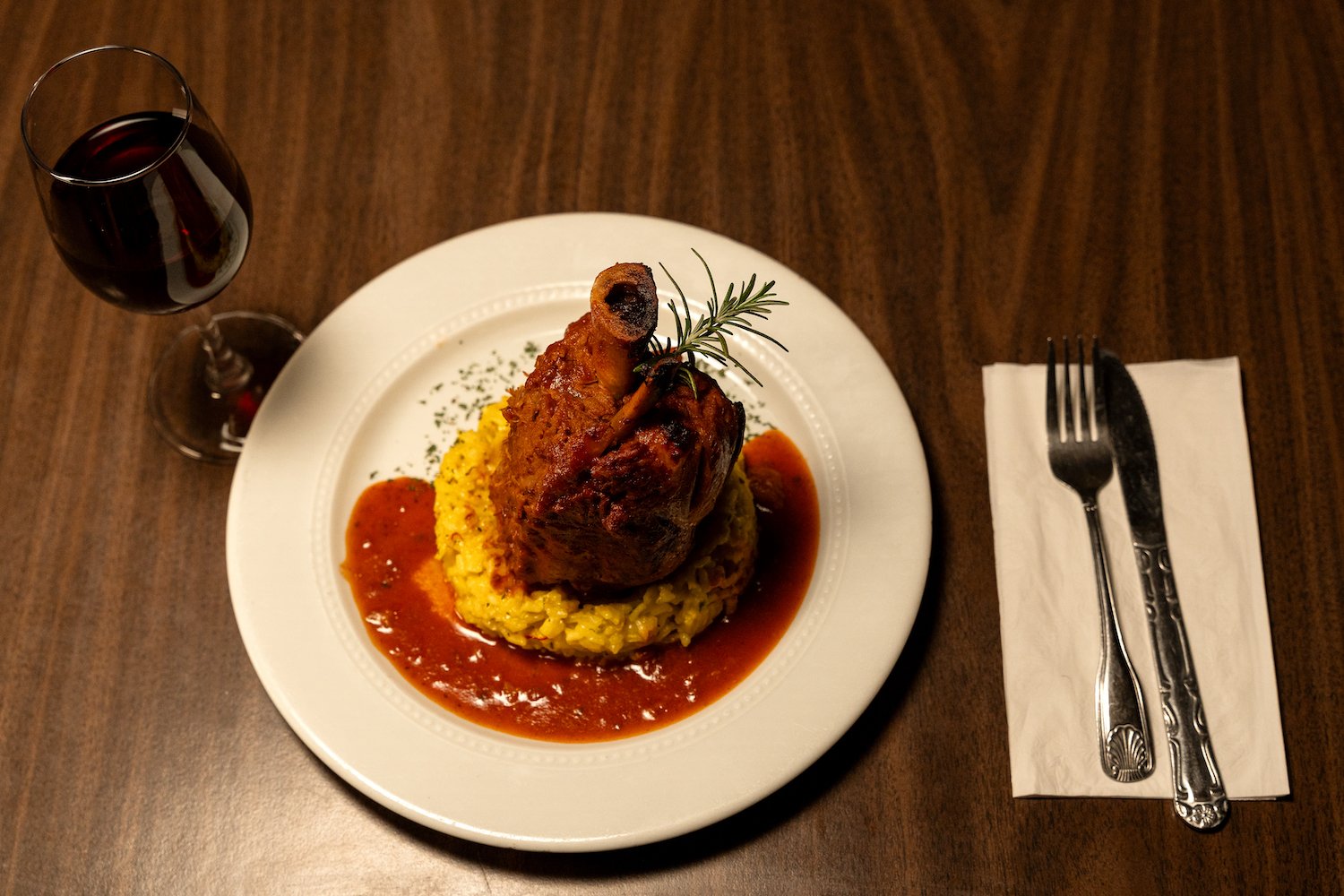
The Italian restaurant sometimes serves oso bucco as a special.
Food prices have hardly soared with the times, either. Pascucci says they’ve rarely had to increase prices until recently, thanks to a longtime affordable rent agreement with their landlords at Squidco, another multi-generation, family-owned business. “I literally have raised prices probably three times this year, because of the fact that my mom had prices from, like, 1992,” she laughs.
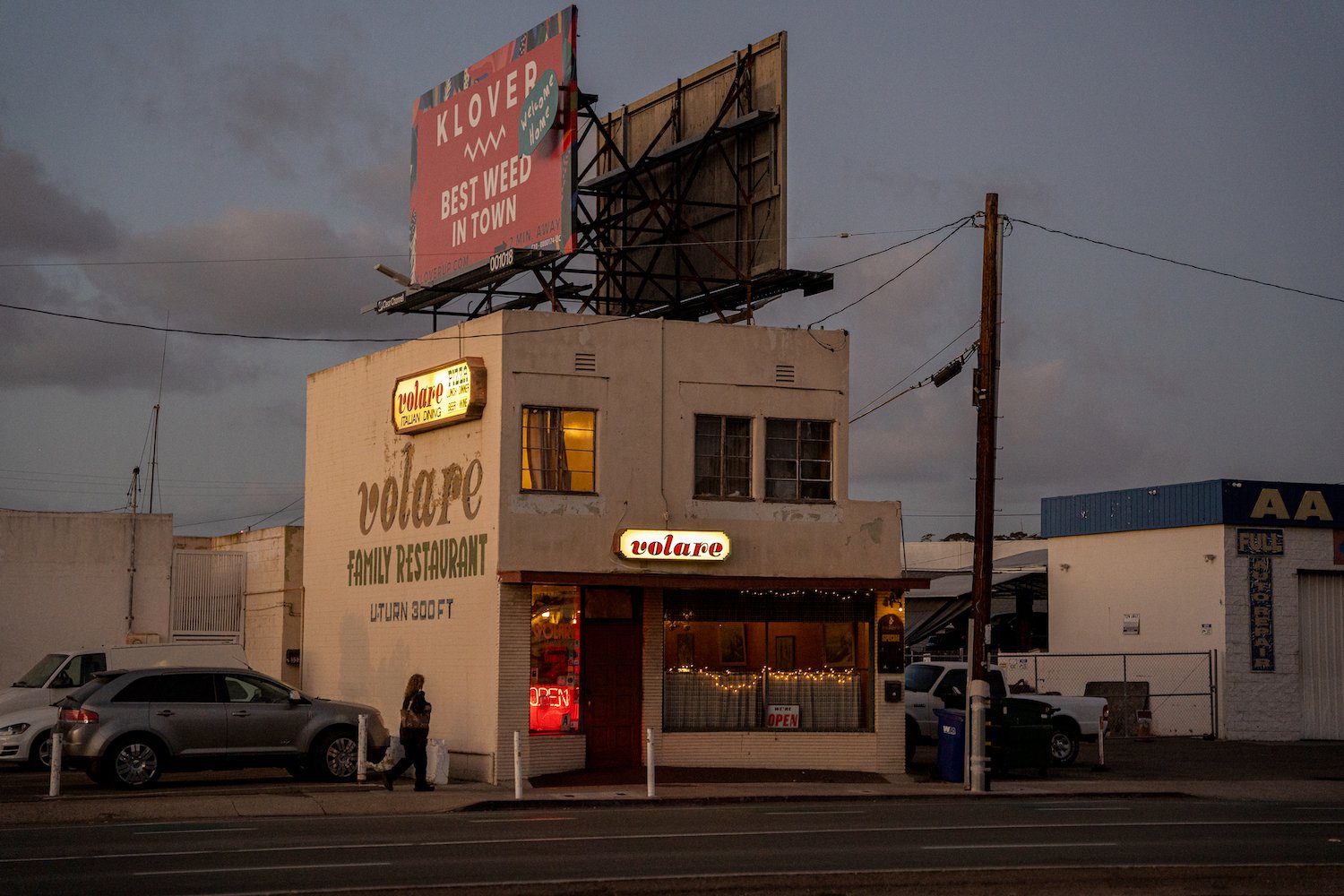
It’s still a screaming deal—my linguini with clams cost a whopping $15.95 and easily serves two. You can feed a kid for less than 10 bucks. A glass of wine is $7.
Despite the family’s disinterest in traditional advertising, decades of word-of-mouth referrals have proved to be enough to keep loyal regulars coming back again and again and again. Just don’t look for them on delivery apps. “My focus is my customers that are in the restaurant,” Pascucci says. The kitchen is tiny, and, frankly, they don’t need the added stress.
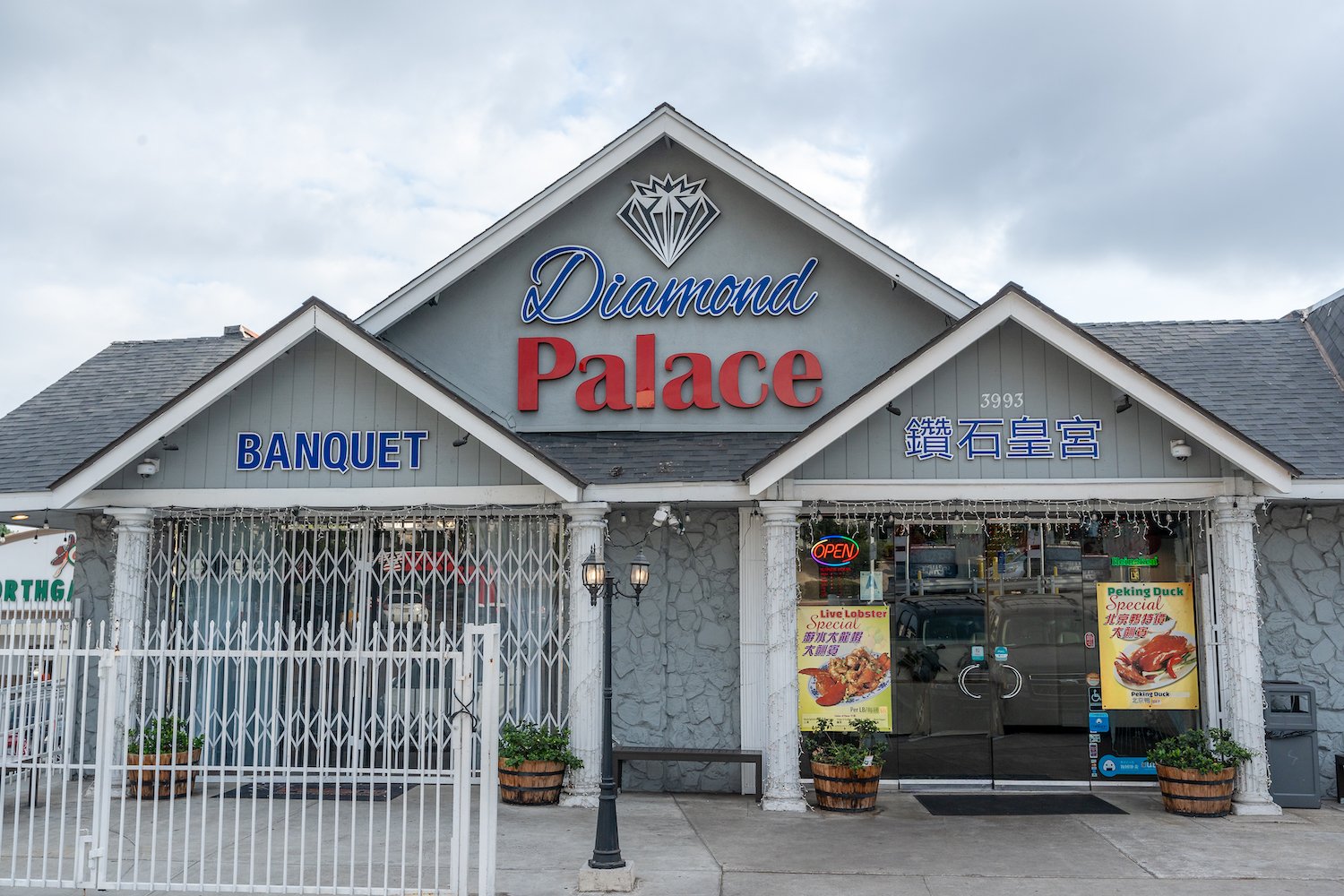
Speaking of stress, soon after my visit to Volare, I find myself gritting my teeth as my car scrapes and bounces its way along the crumbling stretch of University Avenue from Rolando Park to City Heights. “This food better be worth it,” I whisper to myself.
But once I step inside the 600-or-so-seat Chinese banquet hall at City Heights’ Diamond Palace resplendent with glittering chandeliers; Chiavari chairs; and white-tableclothed tables piled high with pan-fried potstickers, shrimp siu mai, and steamed pork buns—the intense salivation prompted by the glorious scents helps wash my irritation away. Aromas of scallions, chili oil, roasting meat… my olfactory glands are working overtime.
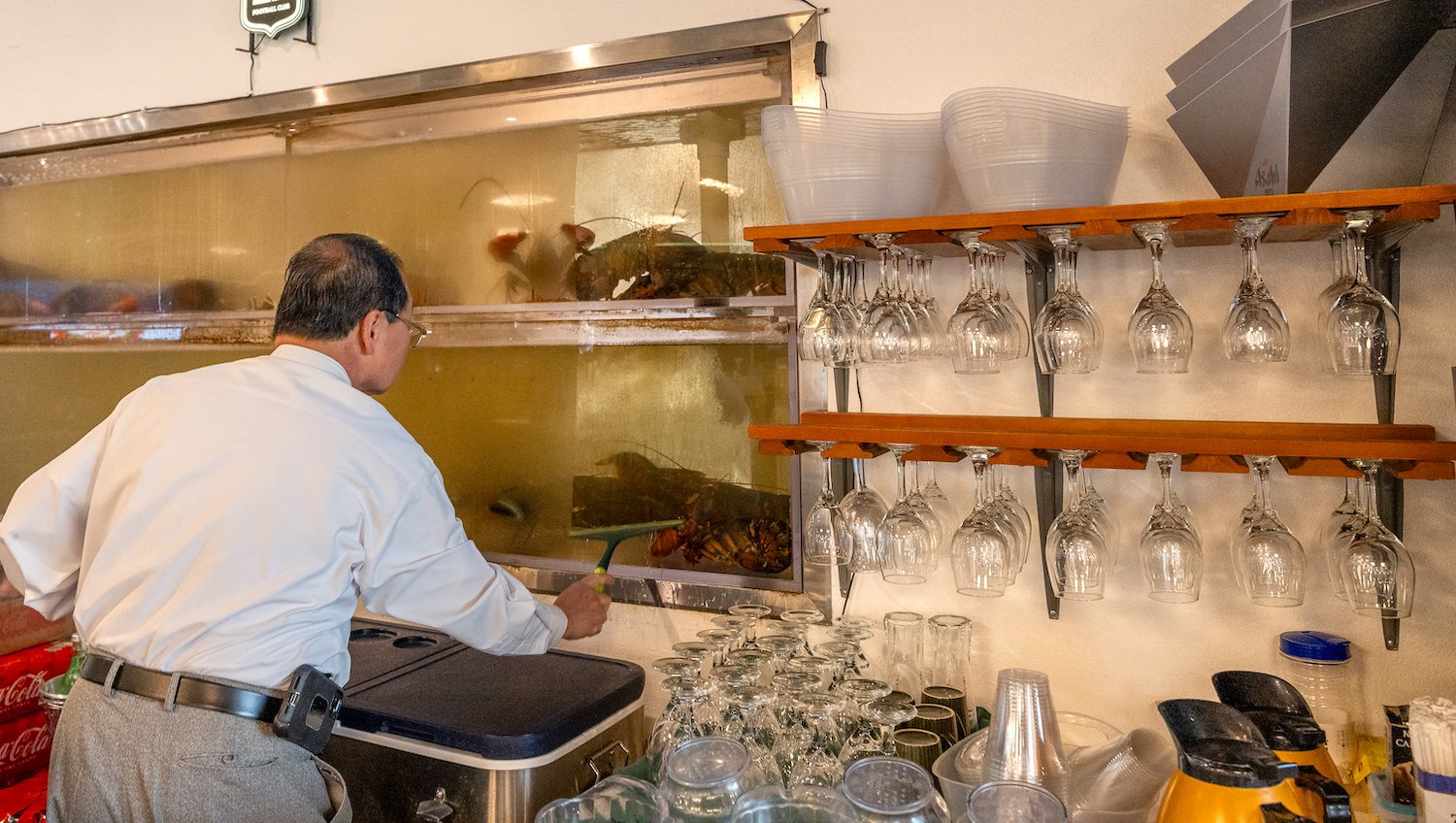
Owner Michael Tran inspecting the lobster tank at Diamond Palace.
Michael Tran is one of the four partners behind Diamond Palace, which opened in 2022. It’s hardly a new endeavor for the longtime restaurateur—he’s worked in restaurants for the better part of 30 years, 23 of them as general manager at another San Diego dim sum giant. That experience helped him launch what he believes is the biggest (and best) dim sum restaurant in the county.
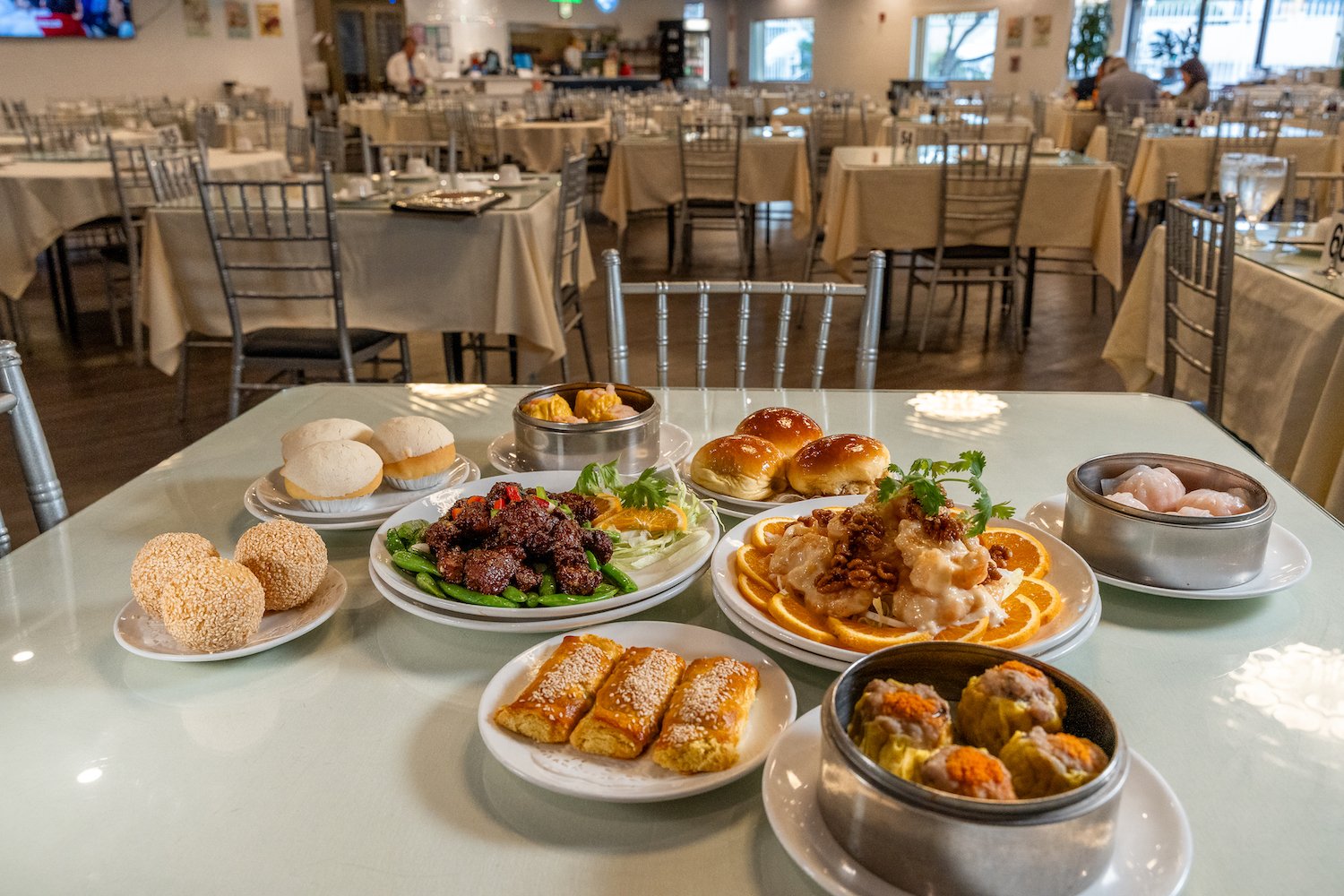
Make sure to bring friends to Diamond Palace so you can try a little of a lot of things.
He points to the menu, each item accompanied by a picture. “[Ordering is] very easy,” he promises, even for first-timers. While the restaurant does get plenty of Chinese guests, he says City Heights’ heavily international neighborhood brings in diners from all over the world, including many refugees and immigrants from Somalia, Cambodia, and Vietnam.
“Weekdays, we’re not that busy. You can show up with 20 people, no problem,” Tran says. But on weekends or holidays, the dining room often fills up for both lunch and dinner, especially when a private party books the adjoining room that can be sectioned off.
PARTNER CONTENT
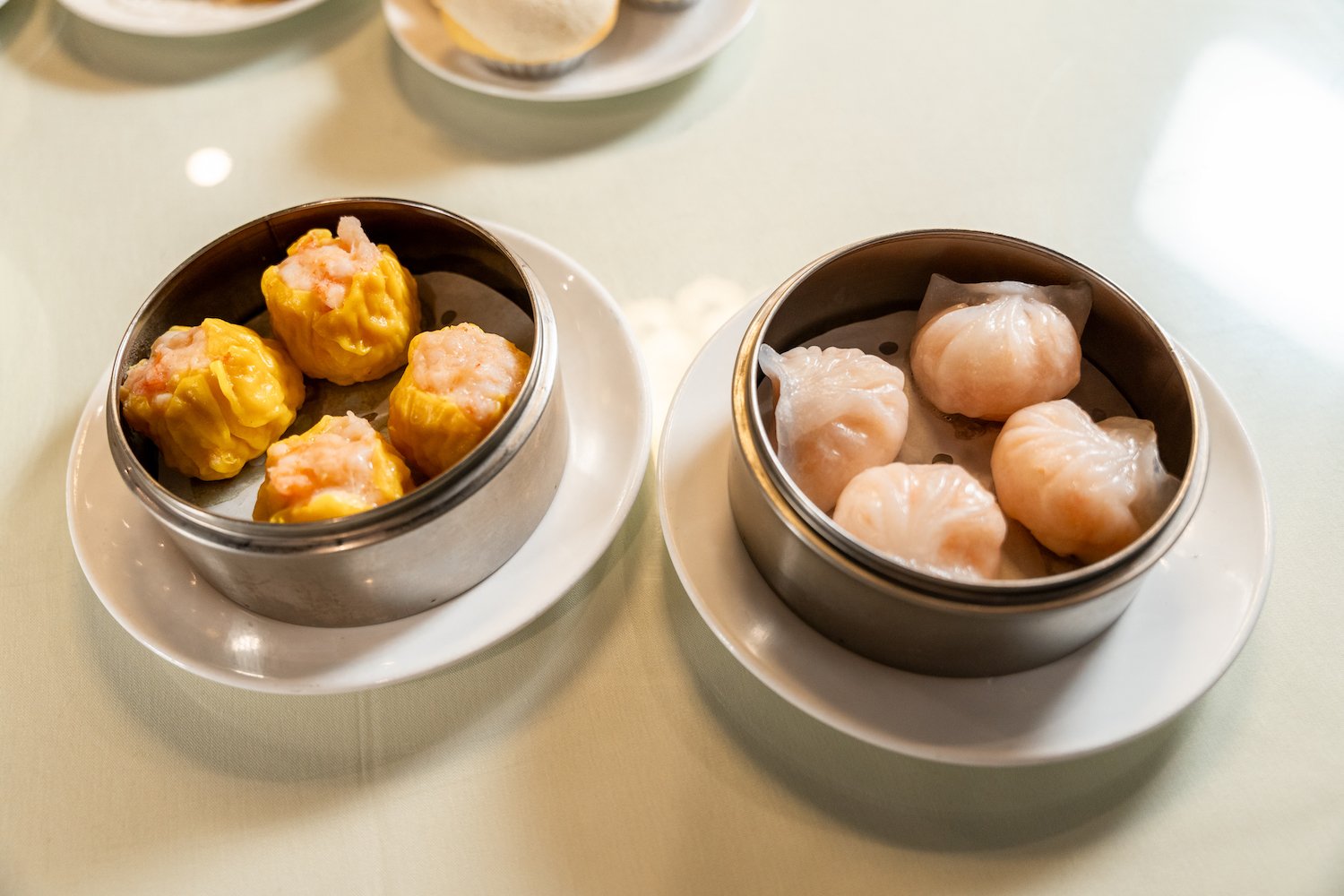
Dim sum is always available, as is the regular kitchen menu with dishes like Peking duck and salt-and-pepper shrimp. To get the most out of your visit, Tran encourages guests to order a variety of options without fear. Don’t like one? “Don’t worry, I’ll take it back,” he promises. “I’ll make it simple, easy.” He doesn’t let me leave empty-handed, and I show enormous self-restraint not scarfing down all of the steamed custard buns before leaving the parking lot.
Of San Diego’s estimated 11,000 restaurants, only a small fraction of them ever appear on a TV show or the pages of a glossy magazine. Many of them have managed to survive, against all odds, without viral videos or even reliable hours. Even the most adventurous eaters can fall prey to new restaurant FOMO I’m guilty of it. But it’s worth exploring those quiet spaces built not on the backs of giants, but grandparents and dreamers. These restaurants provide more than food. It’s a legacy. And it tastes great.

